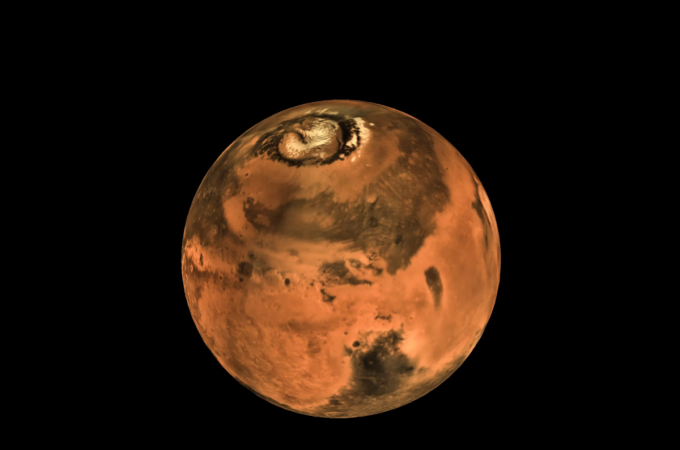
A new study, conducted by researchers led by theoretical physicist Vlada Stamenkovic, who is an Earth and planetary scientist at the Jet Propulsion Laboratory (JPL), California has found that Mars may be more hospitable to oxygen breathing life than previously thought.
The research report published in the journal Nature Geosciences revealed that the salty water near the surface of the red planet may contain a sufficient amount of dissolved oxygen to support similar microbial life that emerged and flourished billions of years ago. The study report also hinted that the amount of oxygen available in some locations could keep alive primitive multicellular organisms like sponges.
"Nobody thought of Mars as a place where aerobic respiration would work because there is so little oxygen in the atmosphere. What we're saying is it is possible that this planet that is so different from Earth could have given aerobic life a chance," said Vlada Stamenkovic, Los Angeles Times reports.
As a part of the study, Stamenkovic and his study team also identified regions of Mars with brines that contain the greatest amount of dissolved oxygen and finding such areas could help NASA as well as other space agencies to spot the right places to land during future missions.
It should be noted that pure liquid water will easily freeze in the Martian surface, but salty water in brines could remain in the liquid state at or just below the surface of the planet.
Unlike Earth's atmosphere, the surface of the red planet is not abundant with oxygen. 21 percent of the earth's atmosphere is made up of oxygen, while in Mars, the amount of oxygen is just .145 percent. The data collected by NASA Mars rovers reveal that the minuscule amount of oxygen is the result of the sun's radiation reaction with abundant carbon dioxide present in the red planet's atmosphere.
However, during the study, experts found that the oxygen concentrations on brines are especially high in brines at the polar regions. where temperatures are extremely cool.
Recently, another study published in the journal Earth and Planetary Science Letters revealed that the underground in ancient Mars had once perfect conditions to host life. The study led by Jesse Tarnas, a graduate student at Brown University revealed that ancient days in Mars had sufficient source of chemical energy required for microbes to thrive underground.









